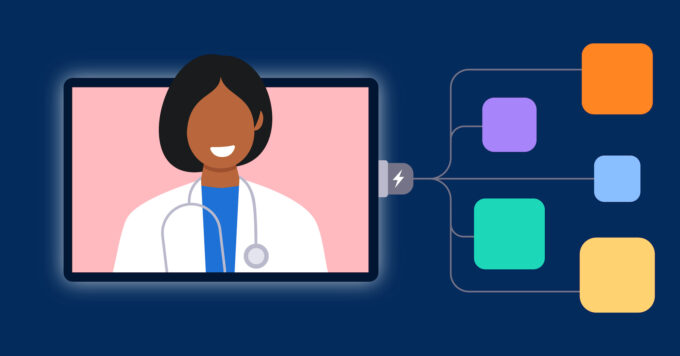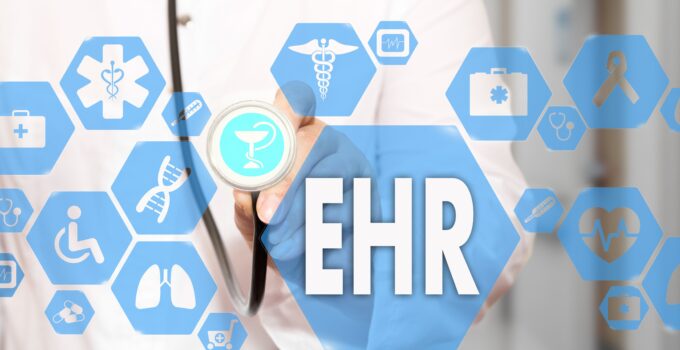Electronic Health Records (EHR) have revolutionized the way healthcare providers manage patient information. With the integration of this software, dental practices can improve patient care and outcomes by streamlining patient information, facilitating communication between providers, and improving the accuracy and completeness of patient records.
tab32 provides the best Dental EHR software. Let’s explore the benefits of using it and how it can improve patient care and outcomes.
Efficient Patient Information Management

Source: dentalresourceasia.com
One of the primary benefits of Dental EHR software is the ability to store patient information in a centralized location. Dental practices can store patient information, such as medical history, treatment plans, and imaging results, in one system, making it easier to access and share between providers.
With the dental software, providers can access patient information quickly and efficiently, improving the speed of care and reducing wait times.
In addition, EHR software can help dental practices manage patient information more efficiently by automating administrative tasks. For example, it can automatically send appointment reminders, manage patient scheduling, and generate billing statements. Automating administrative tasks can free up time for providers to focus on patient care, ultimately improving the patient experience.
Improved Provider Communication
Effective communication between providers is critical to providing high-quality patient care. Dental EHR software can improve communication between providers by providing a centralized location for patient information and facilitating real-time communication.
Providers can use the software to share patient information in real-time, enabling them to collaborate and make informed decisions about patient care.
In addition, It can facilitate communication with other healthcare providers, such as primary care physicians or specialists. The software allows healthcare providers to share patient information securely with other providers. It improves care coordination and ensures that patients receive the best care possible.
Improved Accuracy and Completeness of Patient Records

Source: blog.zoom.us
Maintaining accurate and complete patient records is critical to providing high-quality patient care. Using Dental EHR software can enhance the accuracy and completeness of patient records for dental practices by automating documentation and reducing the likelihood of errors. The providers can generate electronic progress notes, ensuring that patient records are complete and accurate.
In addition, it can improve the accuracy of medication management by providing alerts for any kind of issues. With EHR software, providers can access a patient’s medication history, reducing the risk of duplicate prescriptions and potential drug interactions.
Improved Patient Safety
Ensuring the safety of patients is of utmost importance to dental practices. Dental EHR software can improve patient safety by providing alerts for potential safety concerns, such as drug interactions or allergies.
By using EHR software, healthcare providers can easily access a patient’s entire medical history. With this information, providers can make informed decisions about patient care and minimize the chance of negative events.
In addition, it can improve patient safety by reducing the risk of errors. EHR software enables providers to automate their documentation process, which lowers the likelihood of errors that come with manual documentation.
It can also reduce the risk of errors associated with prescription management by providing alerts for potential drug interactions and allergies.
Improved Patient Engagement
Engaging patients in their care is critical to improving patient outcomes. Dental EHR software improves patient engagement by giving them access to medical records, treatment plans, and imaging results.
Patients can access their records online, enabling them to stay informed about their care and take an active role in their treatment.
It can improve patient engagement by facilitating communication between providers and patients. Providers can use EHR software to send appointment reminders, follow-up messages, and educational materials to patients, improving patient satisfaction and overall engagement in their care.
Improved Quality of Care

Source: 3shape.com
Dental EHR software can improve the quality of care provided to patients by enabling providers to make informed decisions about patient care. EHR software allows healthcare providers to view a patient’s entire medical history, treatment plans, and imaging results.
It helps them make well-informed decisions about the care of their patients. It can lead to more accurate diagnoses and better treatment plans, ultimately improving patient outcomes.
In addition, EHR software can improve the quality of care by providing providers with access to evidence-based treatment guidelines. With the software, providers can access the latest treatment guidelines, enabling them to provide the most up-to-date and effective care to their patients.
Improved Efficiency and Productivity
Implementing dental EHR software can also improve the efficiency and productivity of dental practices. EHR software can automate administrative tasks, such as appointment reminders and billing, freeing up time for providers to focus on patient care.
EHR software can improve the speed and accuracy of documentation, reducing the time and effort required for manual documentation.
Furthermore, It can improve the efficiency of clinical workflows by streamlining patient information management. By providing quick and efficient access to patient information, providers are able to reduce wait times and improve the speed of care.
Improved billing and reimbursement
Dental EHR software can help streamline billing and reimbursement processes by automating the submission of claims and reducing the risk of errors. Dental practices can save time and money by using this tool, which reduces the need for manual data entry and lowers the risk of claim denials.
Increased compliance with regulations
Dental EHR software can help dental practices comply with patient privacy and data security regulations. With built-in security features and the ability to track who has accessed patient information, dental practices can better protect patient privacy and ensure compliance with regulations.
Conclusion
Dental EHR software can significantly improve patient care and outcomes by streamlining patient information management, improving provider communication, improving the accuracy and completeness of patient records, improving patient safety, improving patient engagement, improving the quality of care, and improving efficiency and productivity.
By implementing this software, dental practices can provide more efficient, effective, and personalized care to their patients, ultimately improving patient outcomes and satisfaction. It is essential for dental practices to carefully evaluate their needs and choose dental EHR software that meets their specific requirements and preferences to achieve these benefits.







